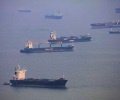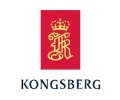Russia reshaping Africa energy links after Ukraine invasion

Russia’s invasion of Ukraine has led to changes in its energy cooperation with African countries — once touted as a priority target for future upstream investment abroad.
Western sanctions are making alternative energy partners and markets, including Africa, increasingly important for Russia. Russian officials are preparing to meet their African counterparts at the Russia-Africa Summit in St. Petersburg July 27-28, after several Russian delegations have visited African countries to discuss increasing cooperation since the conflict began.
The meeting comes shortly after Russia pulled out of the Black Sea Grain Initiative, brokered by the UN and Turkey and set up to support global food security, a key issue for African countries that is set to be discussed this week.
The conflict has also affected Russian oil trade flows. African crude exports are competing with Russian volumes that continue to trade at heavy discounts after the introduction of Western sanctions in response to the invasion. Meanwhile, Russian oil products imports to Africa are surging.
Russia’s energy relationship with Africa has changed significantly since the first Russia Africa summit in 2019, when deals signed on upstream oil and gas exploration, refining and marketing targeted an increasing Russian presence in Africa.
Since then, the Russian mercenary group Wagner has increased its involvement in African commodities production, supply and sales, but there has been little progress on new projects involving Russian oil companies.
“I don’t think we can speak of any tangible improvements in Russia’s energy footprint in Africa since either the last Russia/Africa summit of 2019 or the all-out invasion of Ukraine in 2022,” Paris-based international financial crime analyst and Russia expert George Voloshin said.
He added that Russia’s current macroeconomic woes are not conducive to it increasing its economic stakes across Africa.
In 2019, Putin said he wanted to double Russia-Africa trade, but it rose just a quarter between 2018 and 2021 to $15.6 billion, according to the IMF.
Russia is spending significant amounts on the war, and sanctions have hit one of its key revenue streams — oil sales. The cost of the war in Ukraine is further threatening Russia’s ability to invest in capital-intensive long-term energy projects, including in Africa.
“The war will likely limit the ability of Russian companies to invest overseas, due to both sanctions concerns and Russia’s need to prioritize new export infrastructure and domestic production that can more easily flow east,” said Paul Sheldon, chief geopolitical adviser for S&P Global Commodity Insights.
Changing trade flows
The conflict has had a major impact on export destinations for Russian oil, impacting African producers and buyers.
Immediately after Russia invaded Ukraine, some Western countries began to reduce their purchases of Russian oil. This was compounded by EU embargoes on Russian oil imports and price caps coordinated by the G7, Australia and the EU that came into force in late December 2022 and early February 2023.
The loss of customers in sanctioning countries has led to Russian crude trading at major discounts, spurring a significant increase in Russian crude supplies to Asia.
Platts assessed Russia’s key crude grade Urals at $67.02/b July 25. Platts is part of S&P Global Commodity Insights. Key African crude grades, including Dalia and Bonny Light, are trading at almost $20/b more.
West African crude producers have steadily increased supplies to Europe and North America, while Russia has increased its market share in Asia.
“India and China are effectively two key markets where African, as well as Middle Eastern and even US, exporters have suffered the most significant setbacks due to stiff competition from cheaper Russian oil grades of comparable if not better quality (e.g., Sokol and ESPO),” Voloshin said.
Refined products exports
The loss of traditional customers in Europe is also driving an increase in Russia’s refined product exports to Africa, which increased 14-fold in just over a year after the conflict began. Before the war, Russia exported 33,000 b/d of refined products to Africa, much of it gasoline. By March 2023, that had soared to 420,000 b/d.
Russia also cooperates with African partners under the OPEC+ crude production agreement, as well as the Gas Exporting Countries Forum.
On the eve of the summit, Russian President Vladimir Putin said in a message to forum participants that his nation aims to stimulate cooperation in areas including trade and investment and climate change.
Its ability to do this could depend on the conflict in Ukraine, and its impact on Russia’s financial as well as political capital.
Source: Platts

 Hellenic Shipping News Worldwide Hellenic Shipping News Worldwide, Online Daily Newspaper on Hellenic and International Shipping
Hellenic Shipping News Worldwide Hellenic Shipping News Worldwide, Online Daily Newspaper on Hellenic and International Shipping





















 PG-Software
PG-Software